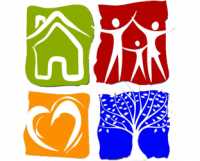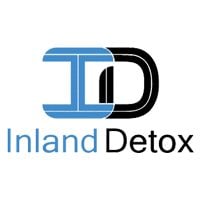About Valley Wide Counseling Services in California
Valley Wide Counseling Services is an accredited drug treatment facility located in San Jacinto, California. They hold certifications from CARF (Commission on Accreditation of Rehabilitation Facilities), SAMHSA (Substance Abuse and Mental Health Services Administration), and a State License. The facility primarily focuses on providing treatment for individuals struggling with alcoholism, opioid addiction, dual diagnosis, and drug addiction. They offer a range of services to meet the needs of their clients, including aftercare support, detoxification, drug rehabilitation, dual-diagnosis treatment, intensive outpatient programs, and outpatient care. Valley Wide Counseling Services accepts private health insurance and is affiliated with MFI Recovery Center, further enhancing their commitment to quality addiction treatment and recovery support.
Valley Wide Counseling Services provides a comprehensive range of services for individuals dealing with addiction and substance abuse. They offer aftercare support, helping clients transition from intensive treatment to long-term recovery. Their detoxification programs are designed to safely and effectively remove drugs and alcohol from the body. Through their drug rehabilitation programs, individuals receive professional guidance and therapy to address the underlying causes of addiction and develop coping mechanisms for a sustainable recovery. The facility is equipped to handle dual-diagnosis cases, offering treatment for both mental health disorders and substance abuse. With their intensive outpatient programs, clients can receive structured therapy and counseling while maintaining their daily routines. Additionally, Valley Wide Counseling Services provides outpatient care, allowing individuals to receive ongoing support and therapy as they work towards a life free from addiction.
Genders
Ages
Modality
Additional
Accreditations
State License
SAMHSA

CARF
The Commission on Accreditation of Rehabilitation Facilities (CARF) is a non-profit organization that specifically accredits rehab organizations. Founded in 1966, CARF's, mission is to help service providers like rehab facilities maintain high standards of care.
Conditions and Issues Treated
Many people who struggle with opioid addiction need to attend specific programs like methadone , Suboxone or Vivitrol clinics.
These types of programs will provide the patient with legal, prescription medications that can help them overcome their cravings for illegal opioids like heroin or fentanyl . If the patient has a chronic condition like Hepatitis C, they must undergo treatment before they can begin taking these medications.
Dual Diagnosis is a specific relationship between two or more disorders that have the same symptoms and can sometimes be treated together. This is used in the treatment planning process when dealing with drug addicts. Dual diagnosis can be viewed as a chronic medical condition that has comorbid psychiatric disorders.
Although addiction and a mental illness may have separate symptoms that are not easy to detect, they often go hand in hand. Many times, drug abuse is a direct result of the mental illness. In other words, treating the addiction will not resolve all of your issues. Unless you also treat the underlying mental illness, you will not be successful in achieving sobriety.
Levels of Care Offered
This center offers a variety of custom treatment tailored to individual recovery. Currently available are Aftercare Support, Detox, Drug Rehab, Dual-Diagnosis, Intensive Outpatient, Outpatient, with additional therapies available as listed below.
Detox refers to the progressive elimination from the body of toxins. The detox period depends on the form of addiction, the length of drug abuse, and the state of health. Under the supervision of medical practitioners, MAT detox based in San Jacinto, CA requires the use of medications.
An intensive outpatient program is usually the first phase of addiction treatment. It provides relief for those who are addicted, but are not ready to commit to an inpatient setting. Typically, the patient lives at home and is able to work or go to school. IOPs consist of a daily 3 to 5-hour program, and there is a required number of hours per week. Most patients go to IOP between 20 and 40 hours per week. The patient attends group counseling and individual therapy throughout the duration of treatment. They also meet daily with their therapist to discuss how it’s going and where they are in the recovery process.
The goal here is to teach patients healthy coping skills, such as stress management and identifying thoughts and behaviors that lead to relapse. The implementation of these skills will be useful as the individual transitions into the next phases of treatment.
An outpatient treatment program is set up to help with alcohol or drug addiction, or a co-occurring disorder. The patient must attend the California facility for their therapy and other programs but are able to return home each night. The frequency of mandatory attendance decreases after much of Valley Wide Counseling Services‘s program is complete.
Aftercare is a term that’s used to refer to any sort of continuing care offered for a drug addict who has voluntarily entered a rehabilitation program. This type of care can be provided in several settings, including outpatient therapy sessions after the addict has completed an inpatient program. There are also 12-step support groups, such as Alcoholics Anonymous, which can provide additional help for addicts trying to stay sober.
Therapies & Programs
Individual Therapy is a critical component of addiction recovery. Therapists work with patients to identify the root of their addiction and figure out how to better handle the issues that led to them using drugs. Individual Therapy is the one-on-one session where people meet with their therapist. Individual therapy provides a safe space for people to open up and discuss personal and sensitive topics which they may not feel comfortable discussing in a group setting.
Couples therapy at Valley Wide Counseling Services focuses on addiction treatment for the addict and their spouse. The addict’s family, not just the addict, can benefit from this form of therapy. Couples therapy addresses communication problems, trust issues, lack of intimacy, and abuse in intimate relationships. Couples therapy can help rebuild trust between partners, which increases the chances for successful treatment and sustained recovery.
Intimate relationships can be damaged during addiction, and professional help may be necessary to rebuild the often destroyed trust and love. Couples therapy at Valley Wide Counseling Services helps couples improve communication and rebuild trust. Either or both partners will be helped by this treatment administered by professionals. This treatment can also help one or both partners if addiction is the problem.
Family therapy will also help families realize that the addiction is not their fault. For many years, people blamed themselves for an addict’s behavior and felt that they had done something wrong. This is not the case. Addiction is a disease, and it can strike anyone, even if their life seems fine from the outside. It can bring a lot of shame to a family when they have an addict in their midst, but if everyone is open and honest with each other, then they can help everyone stay in recovery.
Group Therapy is utilized by drug treatment centers like Valley Wide Counseling Services to provide the recovering drug addict with a platform to talk about their feelings and experiences. It also provides for an opportunity to learn from other addicts who have successfully overcome their addiction.
Group Therapy is employed in lectures, seminars, or discussion groups (the latter two are typically conducted as “therapy groups”). It is recommended that all group members be recovering addicts for this type of therapy to work (though it does not exclude others with lived experience).
Trauma therapy is a clinical process that helps individuals deal with mental stress often caused by traumatic events. It is generally done for children, teenage victims of sexual assault, and war veterans. The therapist helps the person identify, understand and work through the problem. This is done with the help of talking about it in group or one-on-one counseling sessions. Therapists use relaxation, role-playing, art, and music to help the person open up about what is bothering them.
Cognitive behavioral therapy is also a popular service for individuals living with addiction. This type of supportive treatment uses both one-on-one counseling and group sessions to teach addicts how to identify thoughts, behaviors and emotions that might increase their risk of relapse.
These professionals can help addicts develop coping skills for managing stress, improving self-esteem and overcoming triggers. They might also use behavioral therapy to help addicts learn how to avoid cravings and warning signs that could lead them back into addiction.
Therapy can be used as a step-down from inpatient treatment or as the primary method of overcoming an addiction. No matter which option is best for the addict, they will teach important emotional coping techniques, which can make it easier for addicts to get through the tough days.
Training in improved life skills helps those recovering from addiction feel more capable of self-care. Valley Wide Counseling Services are daily skills that give the person the tools they need to survive.
The therapy covers practical activities like cooking, job hunting, social interaction, and money management, helping to fill in the knowledge gaps caused by addiction.
These life skills help the person self-manage their recovery and stay on track. It also reduces relapse risk as they gain confidence in their day-to-day abilities.
Payment Options Accepted
For specific insurance or payment methods please contact us.
Is your insurance accepted?
Ask an expert, call (888) 674-0062
MFI Recovery Center Associated Centers
Discover treatment facilities under the same provider.
- MFI Recovery Center - Riverside in Riverside, CA
- MFI Recovery Center - Banning in Banning, CA
- La Vista Recovery & Wellness Center Services in San Jacinto, CA
- MFI Recovery Center - Banning in Banning, CA
- MFI Recovery Center - Woodcrest in Riverside, CA
Learn More About MFI Recovery Center Centers
Additional Details
Specifics, location, and helpful extra information.
San Jacinto, California 92583 Phone Number(951) 654-2026 Meta DetailsUpdated November 25, 2023
Staff Verified
Valley Wide Counseling Services Patient Reviews
There are no reviews yet. Be the first one to write one.
San Jacinto, California Addiction Information
More than 3 million of California's citizens are addicted to illegal drugs. Almost 800,000 people use hard drugs, almost 5 million use marijuana, and another 2.1 million abuse alcohol every year. Other substance abuse issues such as binge drinking and teen drug use are also common. Many illegal drugs such as cocaine, heroin, methamphetamine, and marijuana are smuggled into the state from Mexico.
9,000 people abuse drugs in San Jacinto, California. The number of overdose deaths from drug overdoses has more than doubled in the past five years. In 2017, there were a total of 564 drug overdoses in San Jacinto. Of those, 405 were attributed to opioids. Drug addiction and abuse can lead to joblessness, homelessness, and criminal activity. It can also have devastating effects on families.
Treatment in Nearby Cities
- Lake Arrowhead, CA (35.4 mi.)
- National City, CA (76.1 mi.)
- Chino Hills, CA (46.7 mi.)
- Hermosa Beach, CA (82.8 mi.)
- El Macero, CA (422.4 mi.)
Centers near Valley Wide Counseling Services
The facility name, logo and brand are the property and registered trademarks of Valley Wide Counseling Services, and are being used for identification and informational purposes only. Use of these names, logos and brands shall not imply endorsement. RehabNow.org is not affiliated with or sponsored by Valley Wide Counseling Services.







